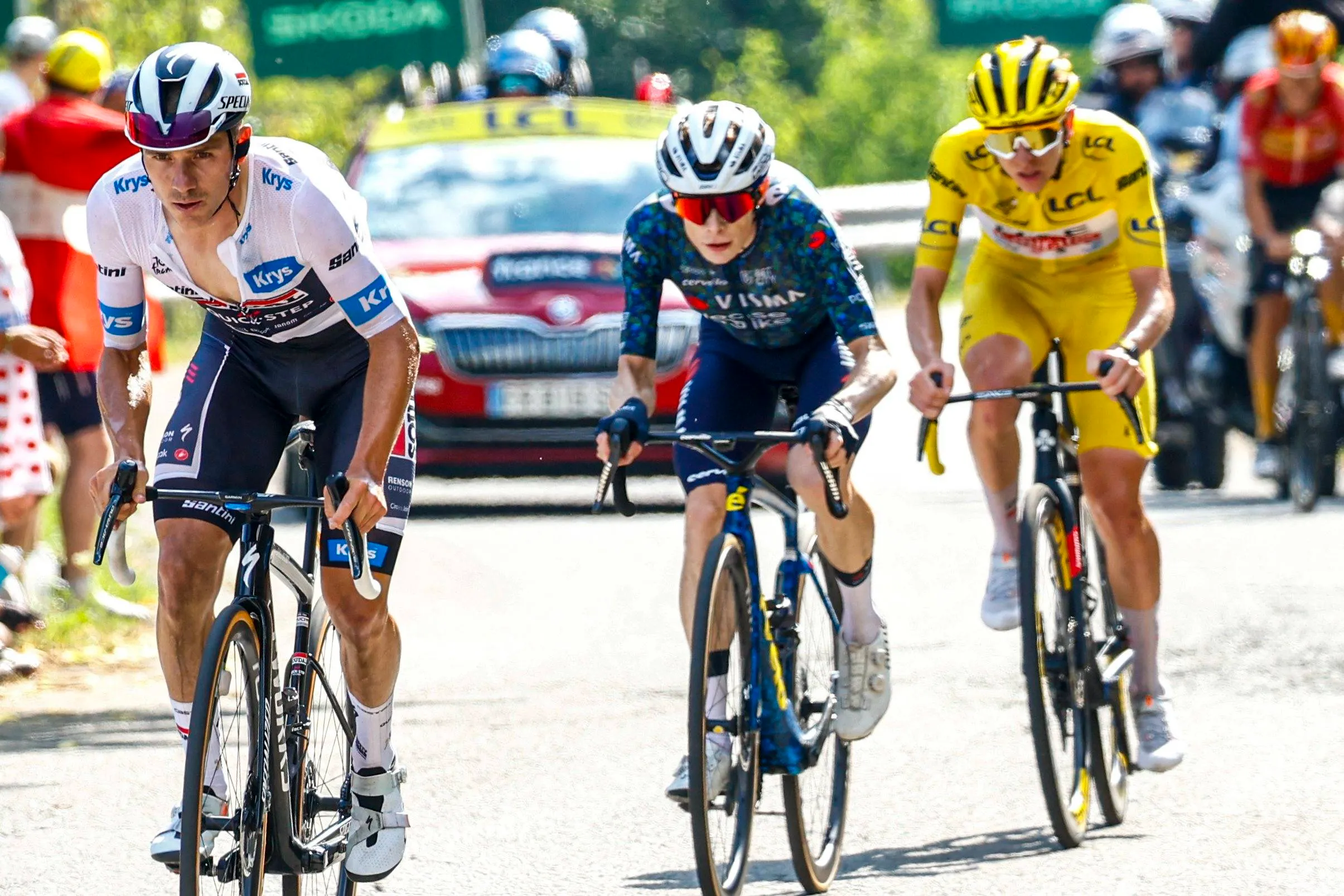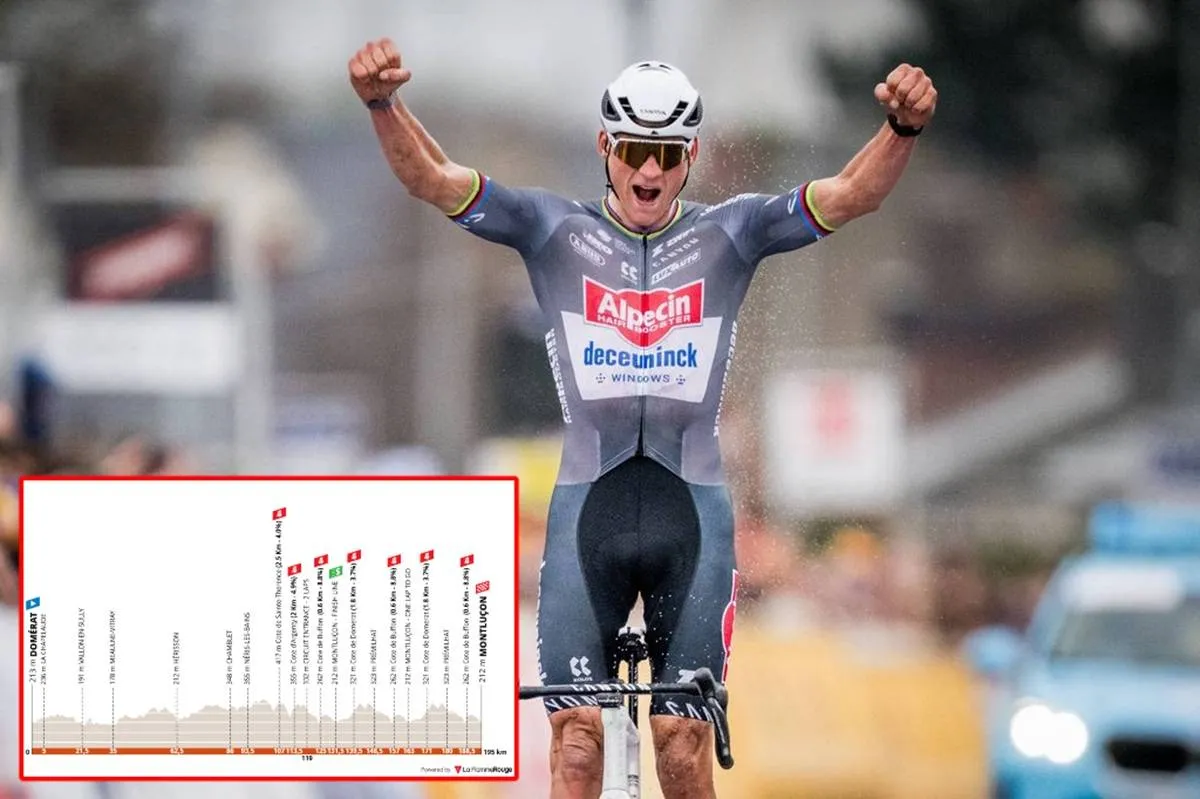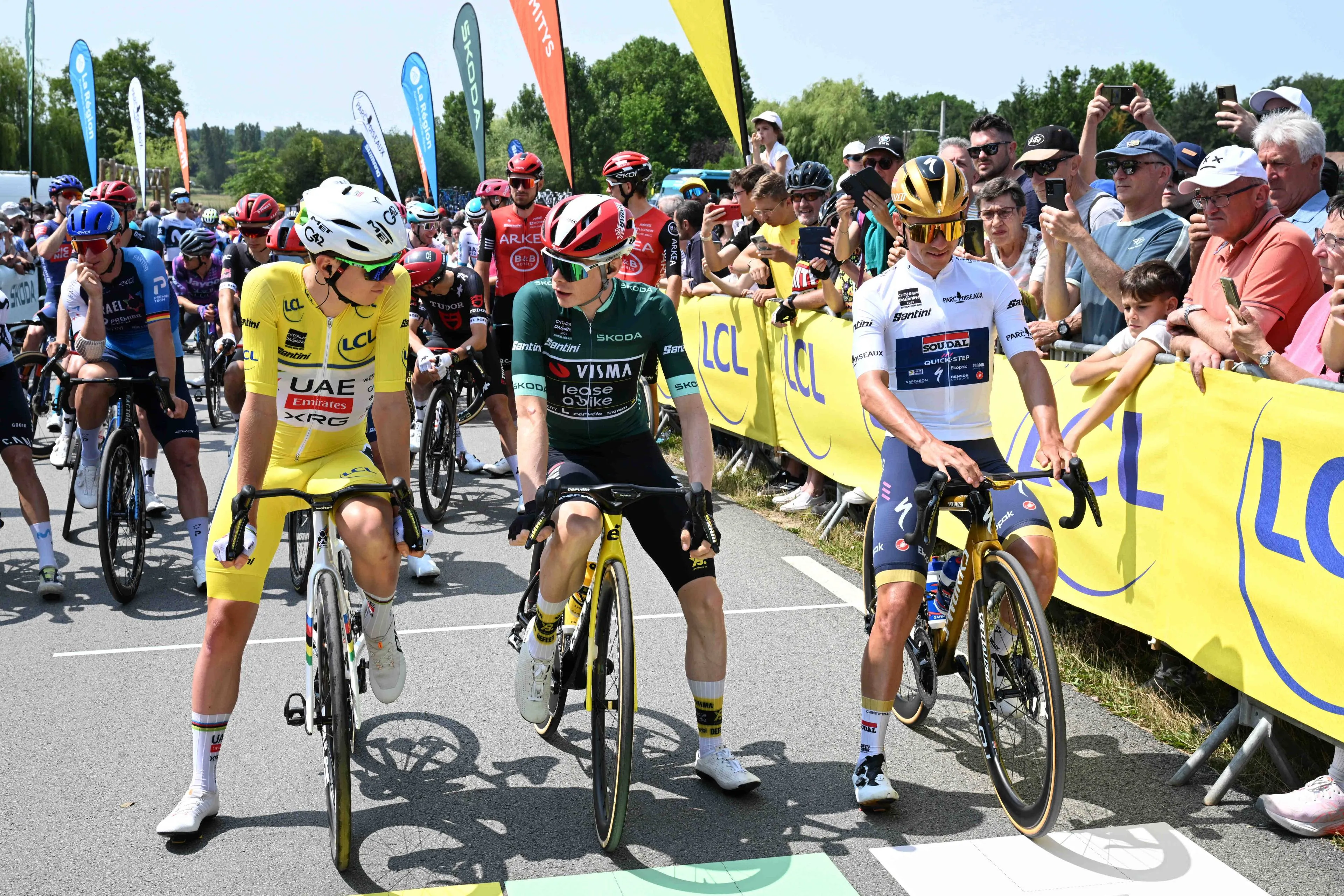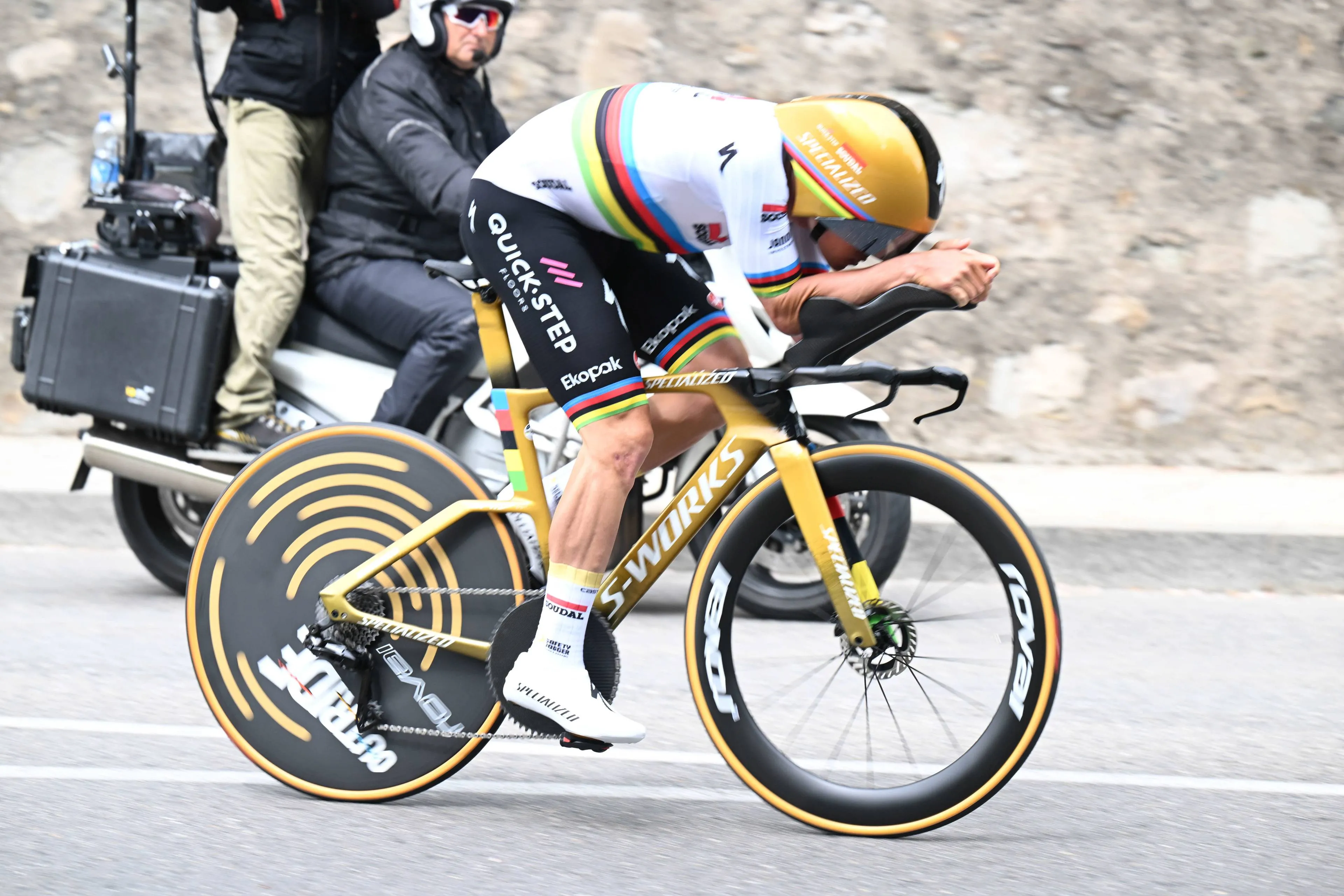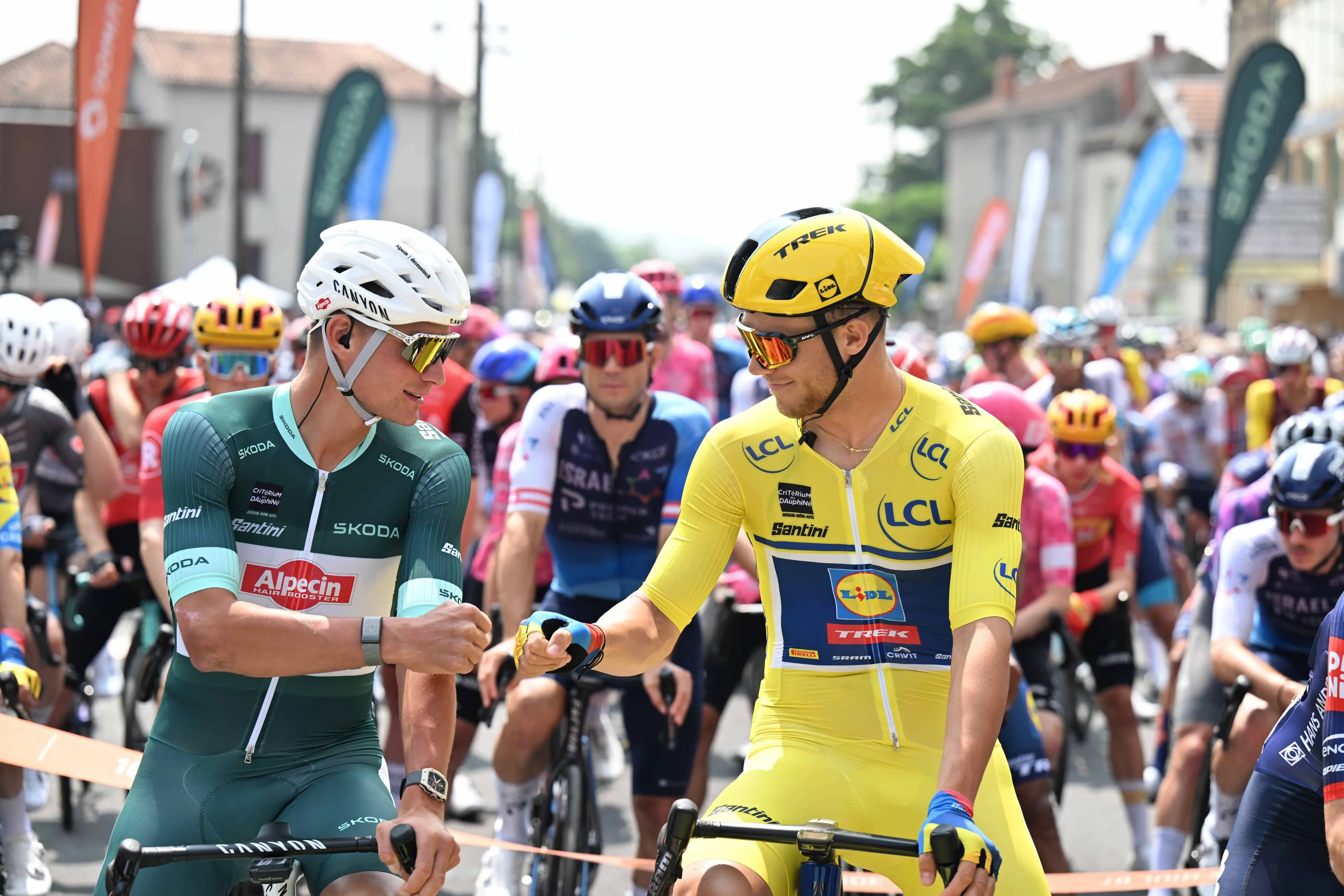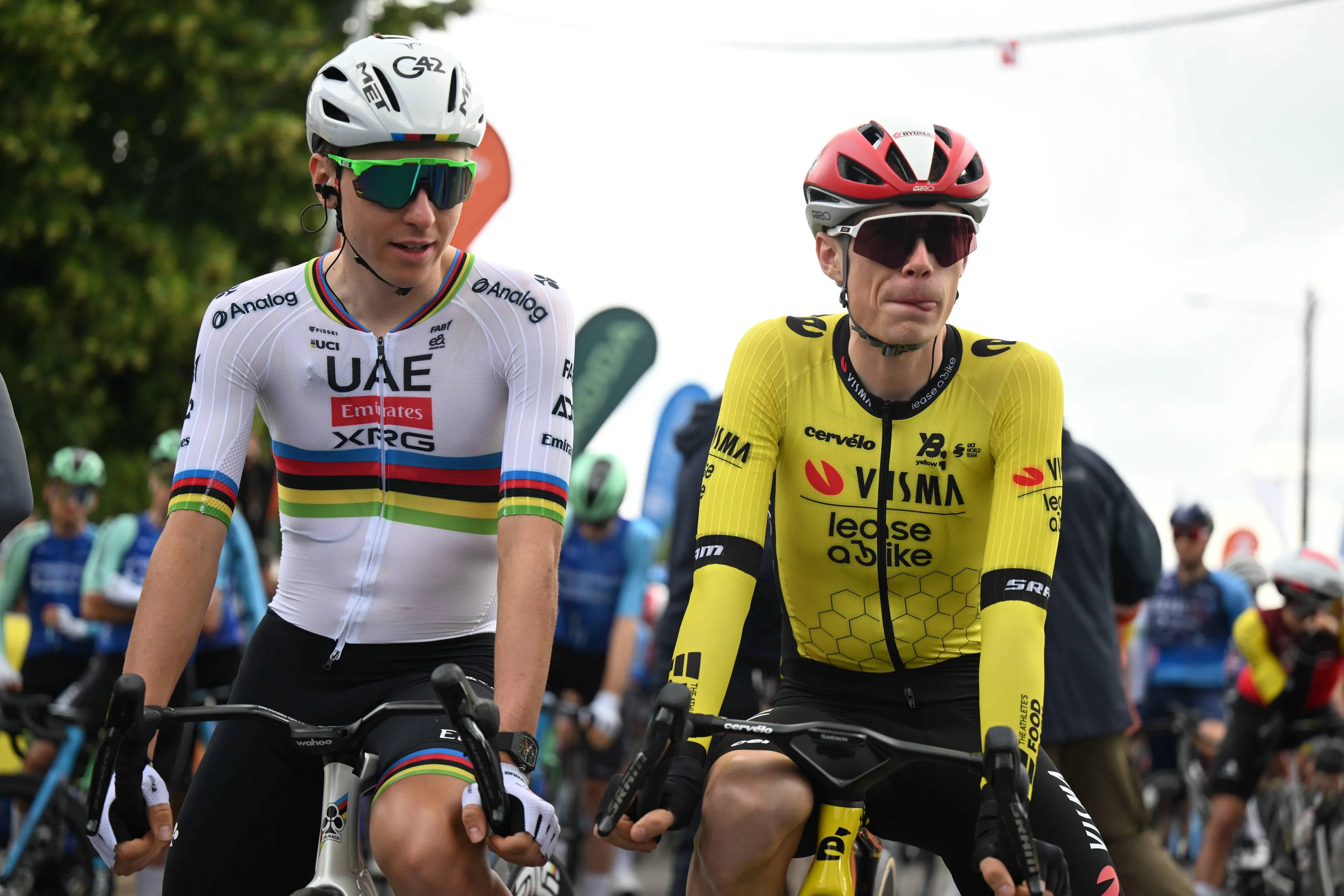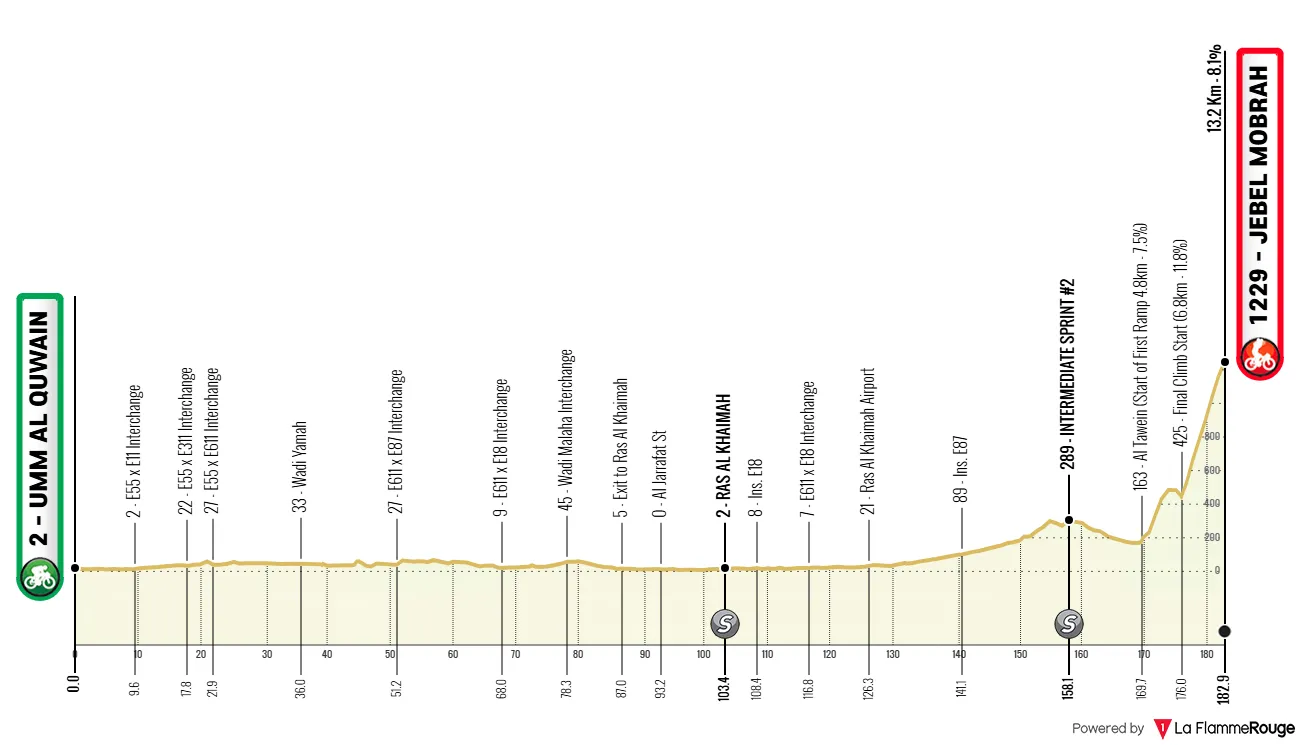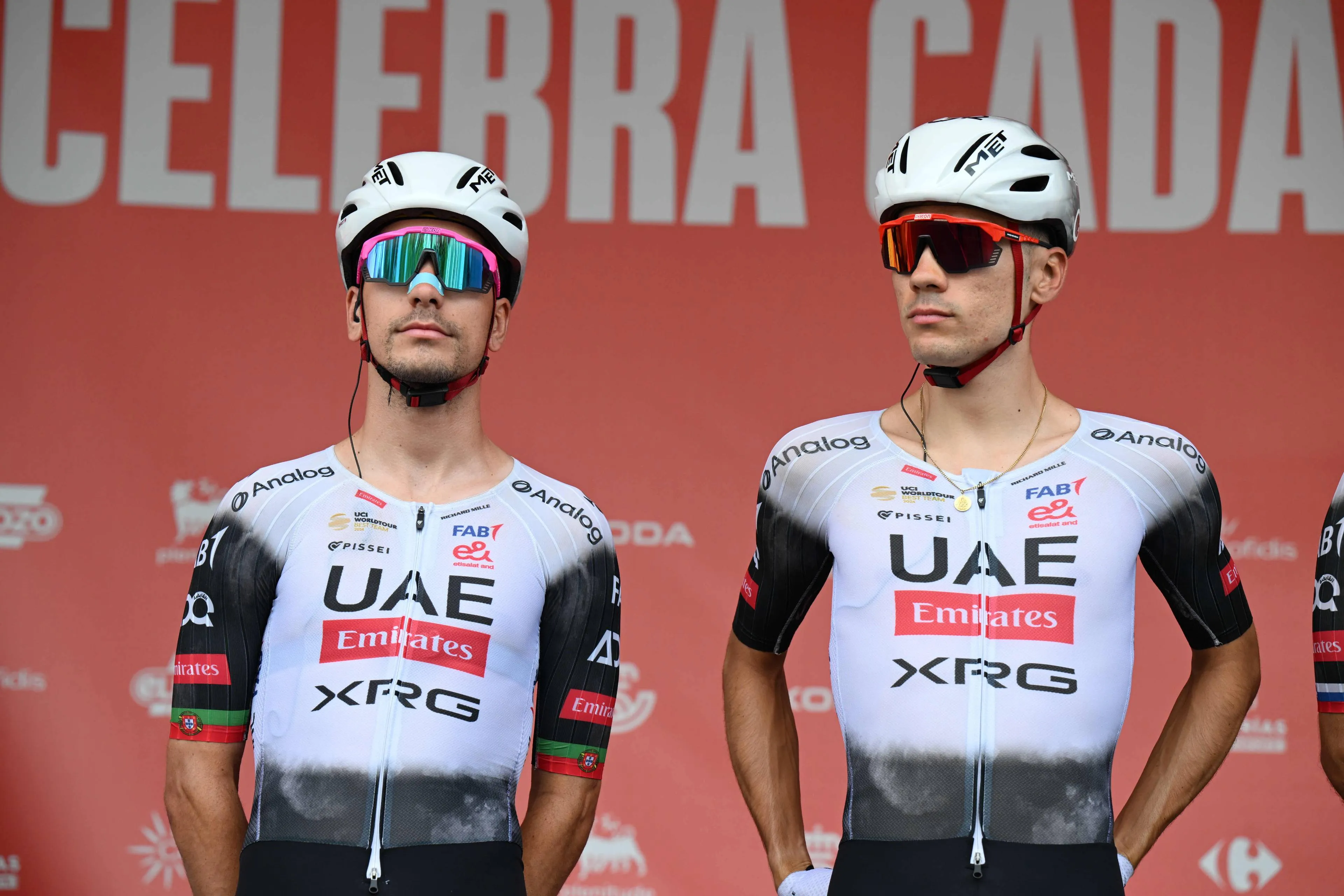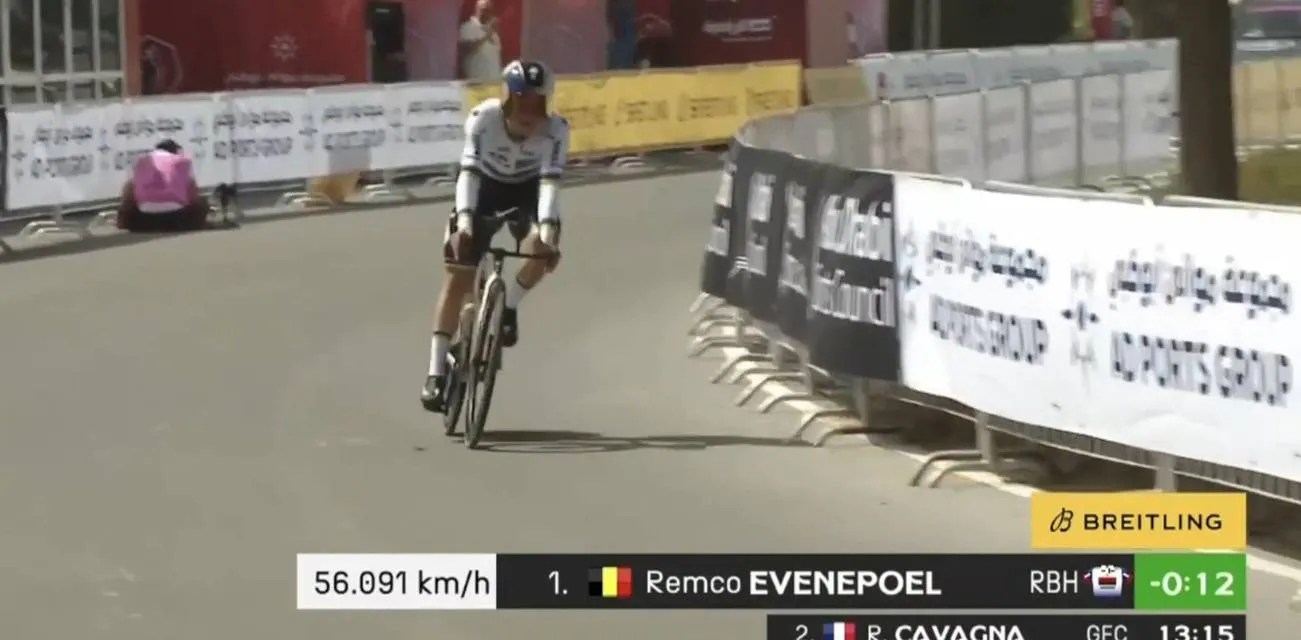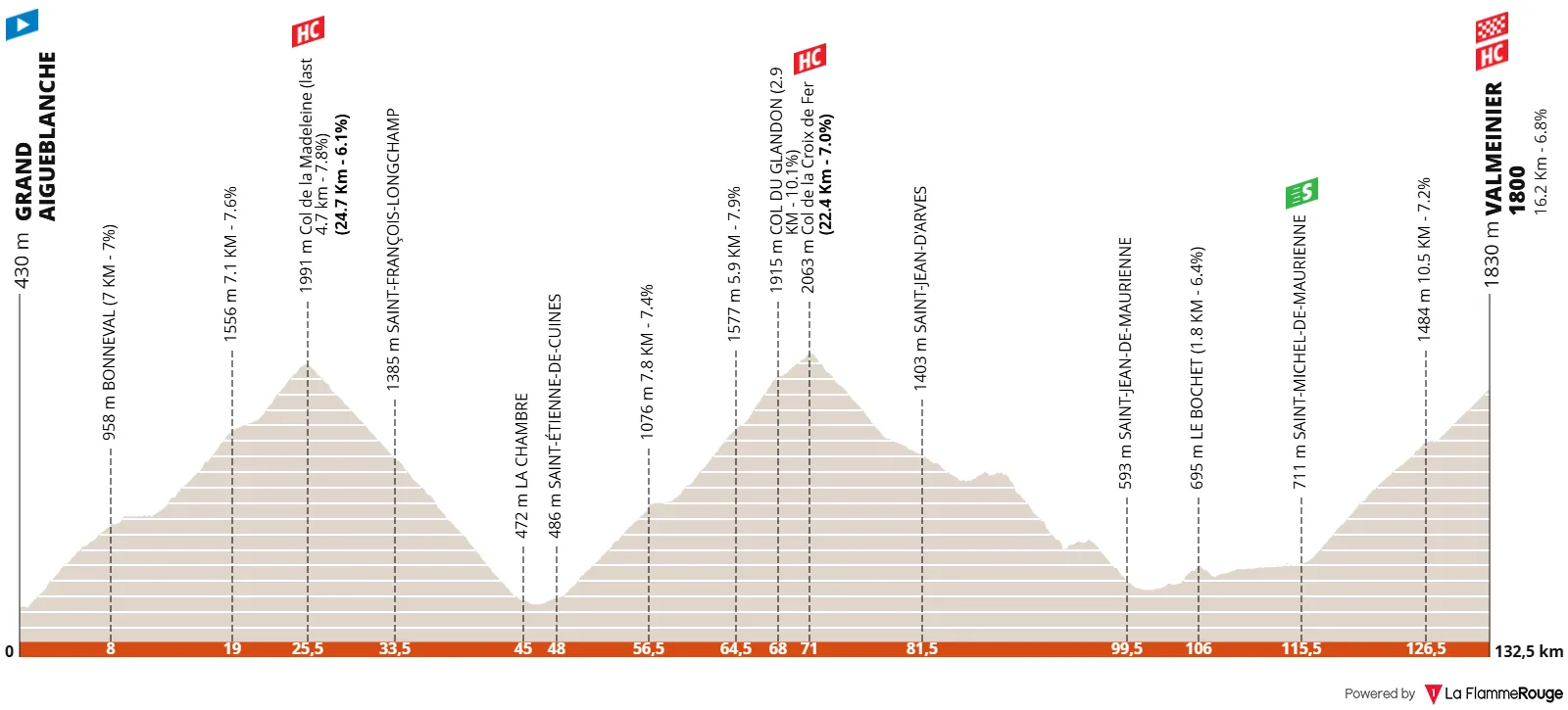
From the 8th to the 15th of June the riders take on the Criterium du Dauphiné. Not only is this race usually the biggest preview ahead of the Tour de France, but it will also have the presence of Tadej Pogacar, Jonas Vingegaard and Remco Evenepoel. Here are the profiles of the race.
The stage features three high mountain stages, a hilly time-trial, and four days that could both fit the sprinters, classics riders or breakaways. It's a week of racing that will prepare riders for the Tour.
Read also
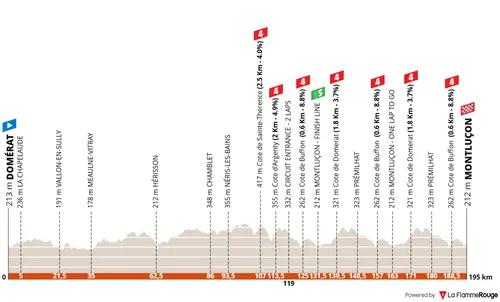
Stage 1: Domérat - Montluçon, 195.1 kilometers
The race kicks off with an hilly stage finishing in Montluçon. Whilst likely not important for the overall classification, the Ardennes-like finale can see some attacks from the GC riders and also those looking to surprise - whilst a sprint can also decide the first yellow jersey.
The stage is quite long, with 195 kilometers on the menu, and this can certainly set up for an interesting finale. The main feature of the day will be a 600-meter long climb at 8% which will be ridden twice, the last of which summiting with 6.5 kilometers to go. It is steep, enough to create differences, but small enough that no-one will really be distanced and splits can likely be closed.
This could be a sprint finish depending on the behaviour of the peloton following the climb, but with a mostly downhill run-in into Montluçon, any rider who fully commits off the front won't be easy to capture.
Read also
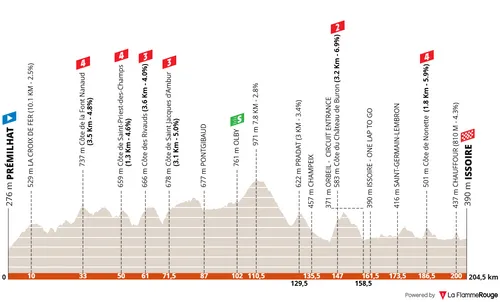
Stage 2: Prémilhat - Issoire, 204.7 kilometers
Stage 2 of the race isn't too different, although the start is much more difficult. Breakaways are more possible to succeed, but the end is flatter than the opening day which increases the possibility of there being a bunch sprint deciding the outcome of the day.
The first half of the day truly is explosive and has the possibility of creating a strong group up front who could go on to fight for a yellow jersey. A lot of the 2800 meters of climbing are located in this half of the day, although the second half does still feature some difficulties.
The most notable 3.2 kilometers at 7% ending with 55 kilometers to go. Still decently far from the finish, if the sprinters survive this, they will mostly have smooth sailing into Issoire. The finale will be flat, but techical... From 5 to 3 kilometers to go there will be a downhill section with a few corners, which will stretch the peloton a lot and also see a massive battle for positioning.
Then a second one will happen into the final corner which is present only around 400 meters from the finish.
Read also
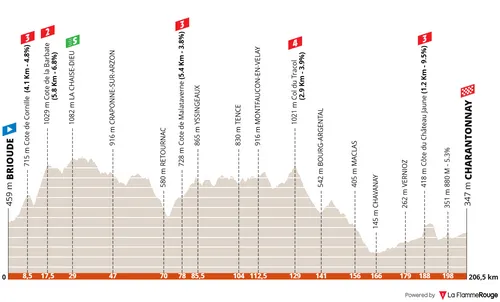
Stage 3: Brioude - Charantonnay, 206.9 kilometers
The third day of racing is not too different than the first ones, only with a tougher start and a slightly more difficult finale. Another day for potential breakaway success, but the truth is that in the steep final ascent there can be some attacks - and the finale can very well be very tactical.
3000 meters of climbing truly make it a tricky day to predict, as alongside the 206 kilometers in distance, this will weight a lot at the end of the day. A full-on GC day isn't to be expected, but the final climb will see all of them try to enter in front, and likely see some attacks - potentially from our protagonists. This will be 1.2 kilometers at 9.5%, ending with 18.5 kilometers to go.
There will be a long way to the finish still from that moment onwards, including a small plateau, a small descent and then a false-flat finale all the way up into Charantonnay. This will open up space for a tactical finale where there can be lots of attacks within a reduced peloton without clear favourites.
Read also
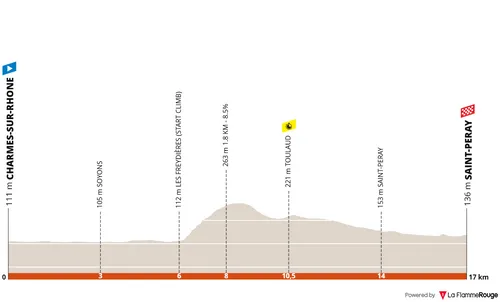
Stage 4 (ITT): Charmes-sur-Rhone - Saint-Peray, 17.4 kilometers
17 kilometers of time-trialing will make for the first important overall classification day in the race. It will be a hilly one, with a short but steep ascent halfway through the course that won't have a real descent to it.
All-in-all, a course where you can make differences for sure, and an effort that doesn't suit the pure specialists in the discipline. The climb will be 1.8 kilometers long at 8.5%, which won't ask for a bike change, but where the climbers can certainly make a difference. After the summit things are very straightforward and simple, and the riders will quickly get themselves to the finish.
Read also
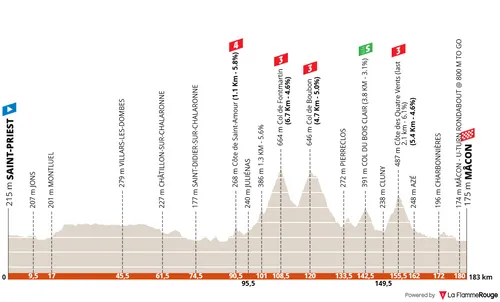
Stage 5: Saint-Priest - Mâcon, 183.1 kilometers
Another tricky day in the Dauphiné, the fifth stage of the race features a flat start but then a few climbs where there can be some pace injected, which would split the peloton. Likely, it's a day for a sprint, but the climbs do pose a question of who will be in contention for the stage.
6.7Km at 5.6% (75Km to go); 4.7Km at 5% (63Km to go) and 5.4Km at 4.6% (28Km to go) will be those that are most important to take into consideration. Not brutal climbs, rolling climbs above all, where a strong rouleur in the breakaway can keep it's gap to the peloton. After the descent, the roads will be rolling into the entrance to Mâcon where the final kilometers will be pan-flat and with nothing technical - although there will be a 180-degree corner inside the final kilometer.
Read also
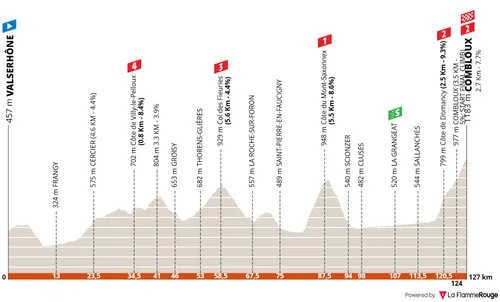
Stage 6: Valserhône - Combloux, 127.1 kilometers
As is usual, the race provides a lot of opportunities for the climbers. There will be three consecutive summit finishes, the first of which in Combloux - where Jonas Vingegaard won a large chunk of time on Tadej Pogacar back in the Tour's 2023 edition. This time around it is a summit finish, and one where we can see some important differences.
The start of the stage is not too hard and like all other mountain stages in the race, the distance is very short. The riders will mostly pay attention to the first 1st category ascent Mont-Saxonnex, which is 5.5Km at 8.6% and ends with 50 kilometers to go. However this won't be a decisive moment in the stage, most will look to save as much energy as possible for the final climb.
This will be the Côte de Domancy, but with a summit finish in Combloux just above, where the 2023 Tour rolled through. It's a climb that is 8.7 kilometers in total averaging just over 7%, but it is harder than it may seem. Everytime it is at the Tour de France or any other race, Domancy makes big differences in it's explosive 2.5 kilometers that average over 9% with multiple switchbacks.
It's an anaerobic climb where you can't do much pacing, and if attacks come you don't have time to recover either after the summit. The final 7 kilometers will mostly be around 5/6%, more manageable, but with a few sections that are steeper.
Read also

Stage 7: Grand-Aigueblanche - Valmenier 1800, 132 kilometers
The queen stage of the race, without a doubt. Whilst very short, it's a stage with three massive mountain passes in the Alps. Each of the climbs are very long and it's a day suited to the pure climbers, where the biggest differences can be made.
Actually, a simple day to describe, with three large ascents and descents. The first of which is the Col de la Croix de Fer, an iconic pass which will here be 24.7 kilometers long at 6%.
After a technical and quite steep the descent the riders are right at the base of the Col de la Madeleine, a relatively shorter but more constant ascent. It is 22.4 kilometers kilometers long at 7% even thought here is a flat section. Most of the climb is very, very hard, the second hour-long ascent of the day which ends with 61 kilometers to go.
The descent here is longer and there will be a flat section still before the ascent to Valmeinier 1800. As the name indicates, that's the finishing altitude - the smallest out of the three. It's a hard one, but also the shortest of the day. The summit finish will create differences however in it's 16.2 kilometers that average 6.8%.
Read also
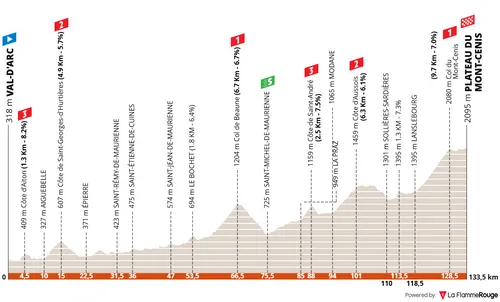
Stage 8: Val d'Arc - Plateau du Mont-Cenis, 133.5 kilometers
The final stage of the race is not as difficult as those that come before it, but it's by no means an easy challenge. The final 133 kilometers will mostly have an uphill trajectory, which means the riders will already arrive at Mont-Cenis fatigued. Whilst the climb is not as hard, the fatigue from the week, day, and the altitude may compensate for it.
The starting kilometers have two categorized climbs where the breakaway should settle in before starting the main climbing part of the day. This will consist of three 'warm up climbs' before Mont Cenis. They will be 6.7Km at 6.7%; 2.5Km at 7.5% and 6.3Km at 6.1%. The last of which ends with 32 kilometers to go, not a lot, and there is no descent that follows.
The final climb to Mont Cenis then, besides going up to 2000 meters of altitude, is 9.7 kilometers long at 7%. The climb itself finishes with 5 kilometers to go, and the riders will then race through the lakeside for that flat finale all the way into the finish.
Read also
🤩 Répétition générale avant le #TDF2025 sur les routes du #Dauphiné ! Rendez-vous dimanche pour le Grand Départ !
— Critérium du Dauphiné (@dauphine) June 2, 2025
🤩 Dress rehearsal before the #TDF2025 on the roads of the #Dauphiné! See you on Sunday for the Grand Départ! pic.twitter.com/FDANCesDpV
claps 2visitors 2
Just in
Popular news
Latest comments
- No matter what people say - I'll watch it. And I bet all the complainers will do it too....averagecyclist18-02-2026
- Exactly what I'm thinking about it. Moreover Van Glis had a lot of time to rethink his situation but decided to stay where he was.averagecyclist18-02-2026
- Soler must be pissed at that
 leedorney18-02-2026
leedorney18-02-2026 - Completly agree, Jan was in front of van gils, following Pidcock wheel, it was Van gils who tried to force his way through Jan and the barriers. Are they blaming Jan because he belongs to the richest team that win a lot?
 maria2024202418-02-2026
maria2024202418-02-2026 - Clickbait title, not reality-based. Yawn.itsent18-02-2026
- lame, but probably correctantipodeanpedalfan18-02-2026
- Van Gils rode like wanted to get crashed or way too over confident that he was going to overtake Jan before getting pinched. It was obvious were Jan was going/had to go and MVG had the whole road to give an inch so he would have a chance to overtake on the rightjad2918-02-2026
- Double book this showing with the Melania documentary and you might get 100 people to see it...total !frieders318-02-2026
- Simple solution...stay off the barriers since you might get closed out ! Christen's sprint was legal as he was trying to get into the slipstream of Pidcock.frieders318-02-2026
- I believe Remco now understands that he will have issues reaching the top step as long as Tadej is in the Tour, whiles he's a year junior to Tadej he has had his upper body rebuilt twice now from crashes over the last few years. I think he has a chance to win the Tour in a few more seasons, you can only prepare yourself as best you can and try. He said he needs to race some more one week stage races, he should, he can probably win them all. I also believe Remco should aim for another Vuelta if he comes out of the Tour in good form and maybe he should think about the Giro again for next season. This is potentially Tadej's fifth Tour win coming up this year, no one is going to derail that unless he falls off the bike or gets really sick.awp17-02-2026
Loading
Write a comment
